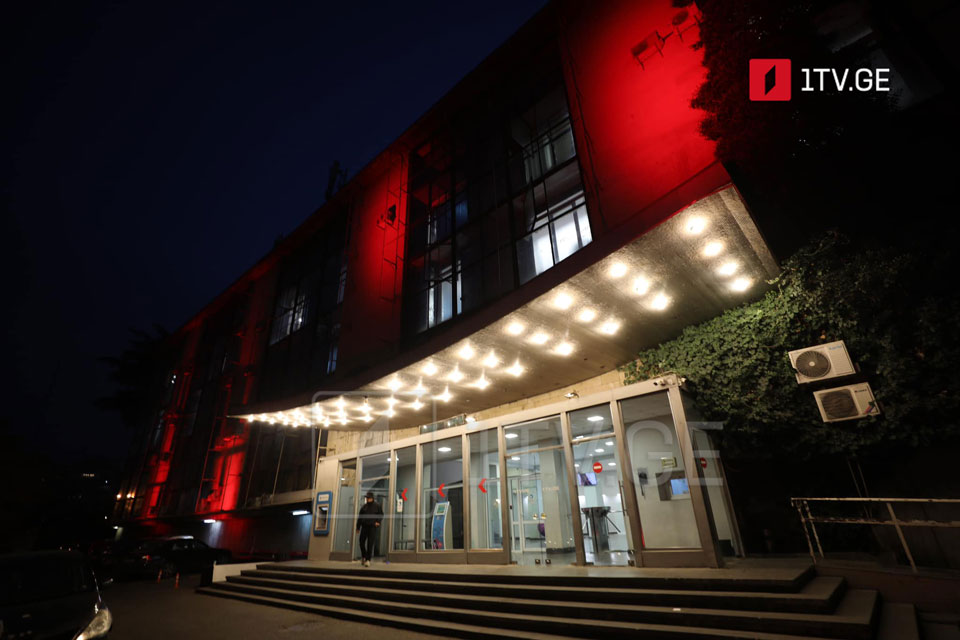
On November 17, the Parliament of Georgia unanimously approved amendments to the Public Broadcaster’s funding model.
As per the change, if the Public Broadcaster was previously allocated a budget of at least 0.14 percent of gross domestic product (GDP), afterward, it will be approved annually and will no longer be based on GDP, which determines financial independence from the government.
The explanatory note of the draft law states:
“Based on the existing macro-parameters, the current method of financing no longer corresponds to today’s reality. The 2021 funding amounted to 69.6 million GEL, and it is planned to be 110.3 million GEL by 2024. Over the last 4 years, the almost 160% increase in budget funding is due not to the real needs of the broadcaster, but to the financing rules in the law, by the high economic growth.”
Tinatin Berdzenishvili, the GPB Director General believes “In the present situation, when Georgian legislation is approaching European legislation, the very decision is not correct and we will definitely revisit it.”
In Berdzenishvili’s view, “it’s not just about funding, but also about altering the rules which is the biggest problem.”
“First and foremost, it’s paramount that we understand the public broadcaster’s mission. This is an issue, in my opinion, since it’s not properly thought out, leading us to enact rules that are somewhat unjustified.
Second, we have a European financing model. Using the European Broadcasting Union (EBU) as an example, we are talking about 64 GPBs from 47 countries. It begs the question, “Why should we have such a funding rule if none of them have one?” Although it is a perfectly reasonable question, we were not permitted to ask it or receive a response.
In a very sharp letter that we also got, the Council of Europe provided several recordings of the public broadcaster’s independence and its role in the country. By the way, the Council of Europe’s most recent document deemed the existing funding model as one of the finest,” she asserted.
Berdzenishvili says, “Editorial and financial independence are crucial as it is correlated with each other.”
According to the Chairman of the GPB Board of Trustees, Vasil Maglaperidze, “All European countries follow the same approach, so there are no negotiations every year. It does not matter whether the funding will be greater or lesser. The new law threatens the broadcaster’s independence.
“The Constitutional Court, the Public Defender, the Prosecutor’s Office, and Parliament are also specific organizations with specific activities. There, money is allocated for fuel, transport, and office work. Does anyone suppose television is working this way, accomplishing office activity? After the office work is ensured here, television shows issue arises.
When TV programs are launched, these programs must be justified. This law does not say this. I don’t know, maybe they missed it or didn’t know, or didn’t take it into account, but it turns out that someone, maybe the Director or the Board of Trustees, must consult someone, conditionally the Parliament or another institution, and substantiate the content of the programs. I carefully listened as several legislators mentioned that they would allocate funds, someway indicating a potential solution,” he underscored.
In her remark, Rusudan Manjgaladze, GPB First Channel media director added: “It is a pity that no one in the Parliament wanted to oppose the law. We had a slogan – What Unites Us – but we did not think whether they would “unite” against the broadcaster.”
Later today, the staff of the Georgian Public Broadcaster made appeal to Parliament Speaker Shalva Papuashvili, saying “This funding rule does not align with the funding model of any public broadcaster in Europe and, contrarily, starkly contradicts the underlying principle of funding public service broadcasters as a whole. In his concluding commentaries, European Broadcasting Union (EBU) Director General Noel Curran expressed concern that this legislation will result in the dismantling of Georgia’s public broadcasting system, a view we fully endorse. Mr. Chairman of the Parliament, in light of the peril confronting Public Broadcasting as an institution, the employees of GPB implore you to convene with us prior to the ultimate enactment of the legislation and heed our viewpoint.”







